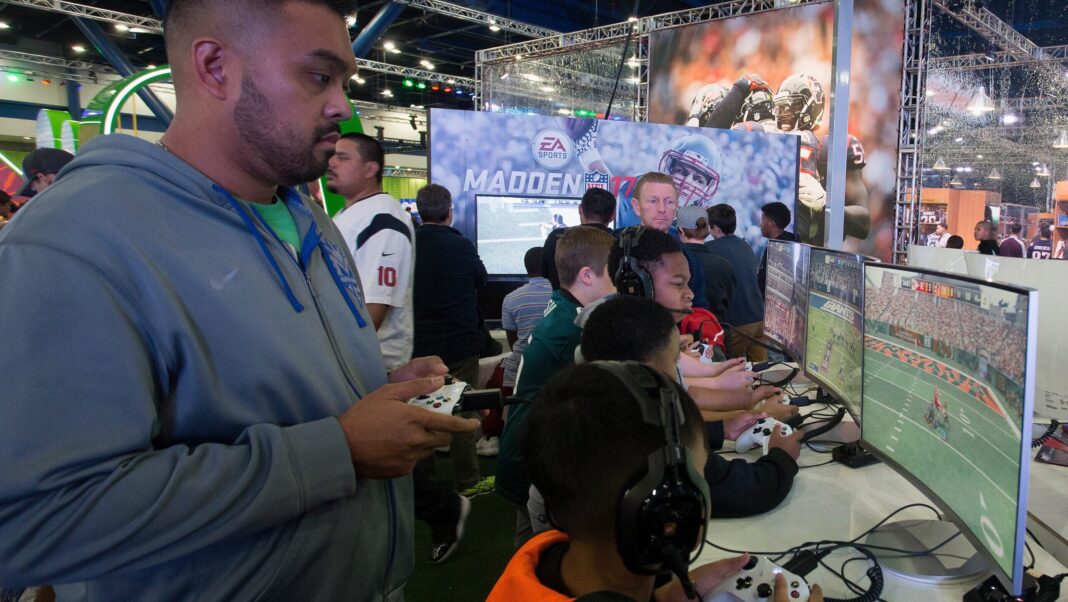A Transformative Acquisition: The EA Buyout
The gaming and finance worlds are buzzing following a significant acquisition that has turned heads across multiple sectors. Electronic Arts (EA), known for iconic franchises like Madden NFL, The Sims, and BioWare’s legendary titles, has entered into a massive agreement valued at $55 billion. This bombshell acquisition involves Saudi Arabia’s Public Investment Fund, private equity firm Silver Lake, and Jared Kushner’s Affinity Partners, representing one of the largest buyouts in corporate history.
A Game-Changer in Corporate Landscape
The deal was confirmed on September 29 and has already stirred a range of reactions. EA’s Chairman and CEO, Andrew Wilson, expressed enthusiasm about the future and the creative opportunities that lie ahead. “Our creative and passionate teams at EA have delivered extraordinary experiences for hundreds of millions of fans,” he noted. Wilson emphasized that this acquisition is a testament to the hard work of EA’s talent, and he is optimistic about pushing the boundaries of entertainment and technology.
By taking EA private, the company will no longer be under the public scrutiny of Wall Street. For investors, this could mean greater freedom to implement long-term strategies without the short-term pressures of quarterly earnings reports. However, for gamers and the broader community, this change raises questions about oversight and creative direction under the influence of politically connected investors.
Impact on Gaming Culture
As a cornerstone of the gaming industry, EA’s franchises occupy a unique space in modern culture, particularly within Black gaming communities. Titles like Madden NFL are more than just video games; they are cultural phenomena. The annual release is often celebrated within barbershops and college dorms, creating a shared experience that transcends mere gameplay. Similarly, EA Sports FC (formerly FIFA) has carved its niche in both competitive and casual gaming circles, becoming a staple in social gatherings.
Perhaps more significantly, The Sims serves as a platform for self-expression and representation. It allows players to create and navigate life experiences in a manner that resonates with diverse identities. For over two decades, The Sims has given players—especially in Black communities—an avenue to reflect their lives and cultures. Celebrities such as Megan Thee Stallion and Keke Palmer have publicly embraced the game’s storytelling capabilities, further cementing its cultural relevance.
Concerns Over Ownership
Despite the prospects that come with such a lucrative deal, apprehension hangs in the air regarding what this shift in ownership might entail. Fans are understandably concerned that the commitment to inclusivity and creative freedom, which have characterized EA’s offerings, could be compromised. As the company answers to investors with political ties, the possibility of sanitized content and corporate mandates looms large.
The worry isn’t unfounded. With billionaires consolidating power over mainstream media through ownership of newspapers and social platforms, the landscape has become fraught with concerns about censorship and artistic integrity. This acquisition arrives during a period marked by heightened scrutiny on media freedoms and the control exerted by wealthy individuals over narratives ranging from entertainment to journalism.
The Broader Context
Contextualizing this acquisition requires a look at the larger media and political landscape. The ongoing consolidation of power by wealthy investors raises alarms about the future of artistic expression. As networks and platforms face pressure to restrict programming critical of powerful political figures, the effects trickle down to the gaming industry as well.
The intersection of politics and media is complex, and as EA embarks on this new chapter, the potential for change in how its games are developed and perceived becomes a crucial talking point among fans and players alike. Will the creative teams at EA be given the autonomy to maintain the cultural relevance that has defined their legacy? Or will they be subject to the whims of investors looking for returns in a rapidly shifting market?
In this evolving narrative, the balance between financial interests and creative expression hangs precariously in the balance, leaving gamers and industry watchers alike bracing for what comes next.



